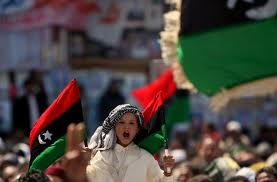Given the problems the Libyan regime is experiencing in
arranging the current political balance – more or less one of tension followed
by negative actions – it is imperative that the establishment of the election
proceeds without any major disruption. Any hiatus arising from the activities of
the militias or major political shifts by players in the elections will be
viewed by the majority of the Libyan people as another government failure.
Of great assistance to the regime is the fairly consistent
advice from the imams that honest Libyans should baulk at the disruptive
activities of extremists. This message has been put out in direct and simple
language through the mosques although, as yet, there is no guidance available as
to the relative importance of these main religious leaders.
In an interview, Minister of Religious Endowments Dr
Hamza Abu Faris stressed the importance of opposing the hostile
movements controlled by the Islamic fundamentalists. Faris, like many Libyans
who were educated at serious Islamic schools, takes a much more philosophical
view concerning the entry into the country of non-Islamic workers, and is
content to endorse the response of the average Libyan against the Islamists, as
do most of the imams who are working in the country.
The religious establishment, rather like the National
Transitional Council (NTC), is anxious for the country to avoid civil
war and the Islamist terrorist attacks that occur elsewhere in places such as
Iraq, Afghanistan and now Syria. It is very aware that, throughout the long
battle for the control of Libya, religion has not played a damaging or divisive
role and that there are real causes for discomfort which must be faced if the
country adopts a radical Islamist programme. The imams would like to see Libya
escape without a fully-fledged civil war.
© 2012 Menas Associates

No comments:
Post a Comment